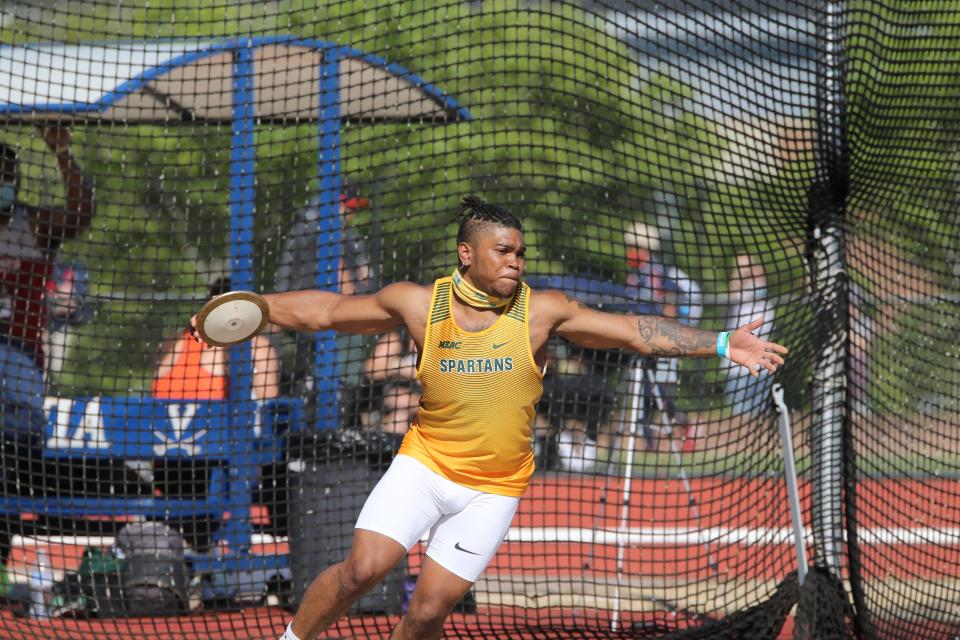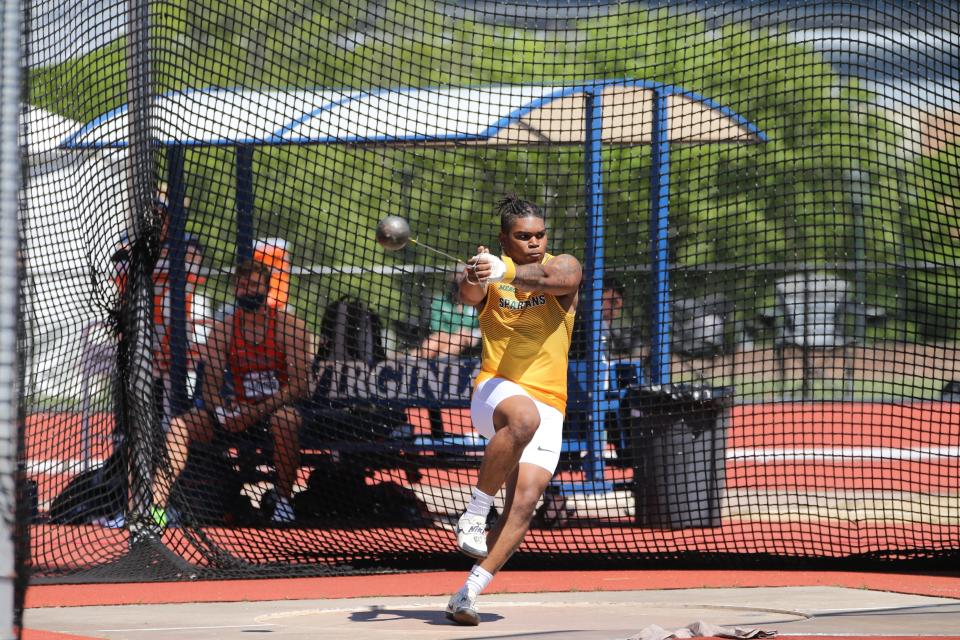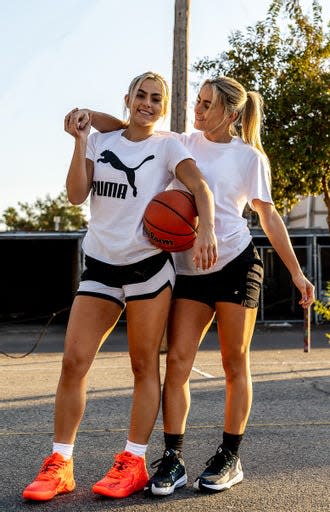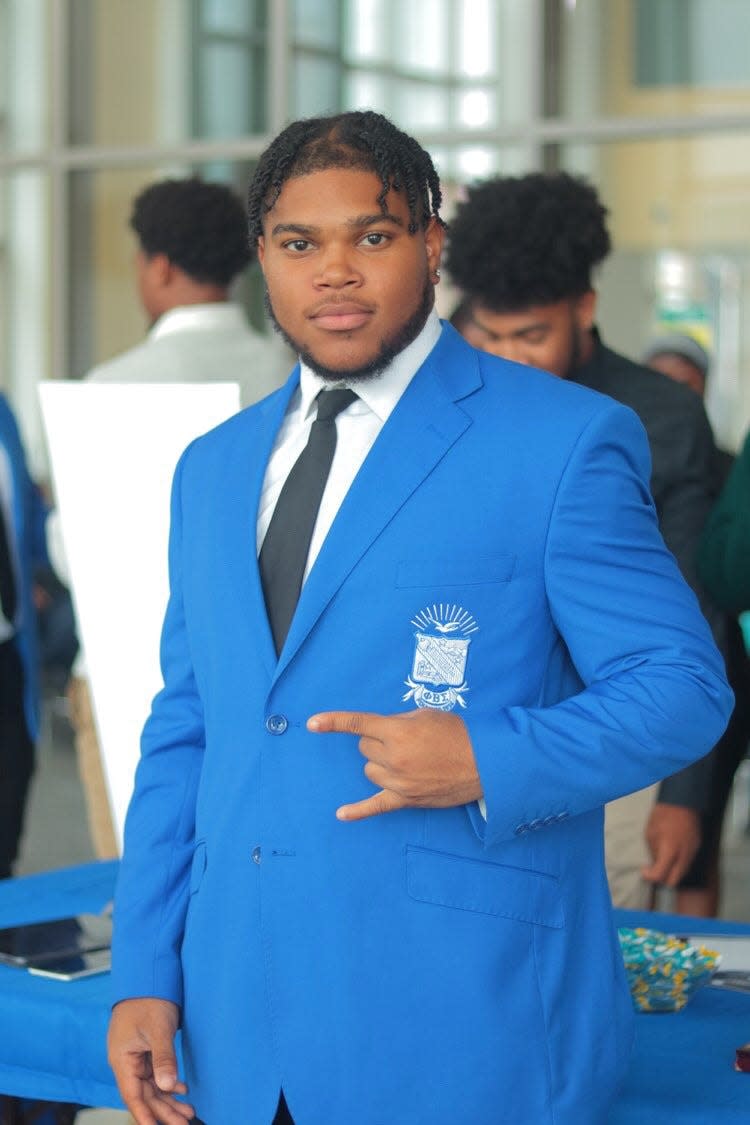As college athletes cash in on NIL, tax experts and schools remind them to pay Uncle Sam
Rayquan Smith doesn't play football or compete as a decathlete at a major college, but that hasn't stopped the Norfolk State University dual athlete from cashing in on sponsorships that are now allowed under a new policy changing the financial landscape in amateur sports.
Until last July, student-athletes couldn't profit if their name, image, or likeness was used to sell products. Now, under the new name, image and likeness policy introduced in the summer of 2021, they can, and many are learning their new-found earnings come with responsibilities beyond going to practice and marketing themselves.

Smith, who turned 21 in July, told USA TODAY that he expects to earn about $40,000 this year from roughly 75 name, image and likeness deals that also includes merchandise in exchange for his appearances to promote a range of products.
Those earnings have also taught him a lesson in smart financial planning.
Smith, on an athletic scholarship at the roughly 5,500-student school in Virginia, said the name, image and likeness money he receives flows into a limited liability company (named after himself) that he created in January.
"This year coming up will be the first year of paying taxes," he said. "But, it will be easy for me because I have an LLC and a business account. So, I won't have to worry about it."

With several hundred to multimillion dollar sponsorships suddenly becoming available to college athletes, some universities are counseling these young adults to make sure they don't spend everything they receive because state and federal governments are entitled to their cuts.
One longtime certified public accountant in California said that's a good thing because most student-athletes likely have never filed a tax return or been independent contractors, who also will pay 15.3% self-employment taxes.
"Tax planning is going to be very important for them," said Larry Pon, a Redwood City, California, certified public account for 36 years.
Pon said all income received by student-athletes is taxable, and they may want to follow the example of Smith and create a limited liability company. Pon said that allows a person to deduct expenses such as hiring an agent. He also notes that while most young adults don't think about retirement, student-athletes can "shelter a lot of money" from taxes by creating a retirement plan.
'This is going to be very tricky'
College athletes for decades were prohibited from legally earning money through personal sponsorships.
But that all changed on July 1, 2021, when the NCAA – under immense legal pressure – allowed a name, image and likeness policy to take effect that let student-athletes make money in a variety of ways, including signing autographs, making personal appearances, or using social media or other means to promote businesses, products, or services.
The policy changed after about two dozen states passed laws making it illegal for the NCAA to restrict the earnings of college athletes.

Now, more than 100,000 college athletes are allowed to profit from their name, image and likeness, according to Blake Lawrence, a former University of Nebraska linebacker, whose company, Opendorse, has helped professional athletes with endorsements. He told USA TODAY that the deals range from a few dollars to more than $10 million.
Some of the biggest names in college sports to capitalize on name, image and likeness deals have been Haley and Hanna Cavinder, twin basketball stars who transferred from Fresno State to the University of Miami this fall, and Louisiana State University gymnast Olivia “Livvy” Dunne.
The women star in TikTok videos and have millions of followers on social media, which makes them marketable for companies. The Cavinder twins could make $1 million this year, according to one of their agents.
Meanwhile, several schools, such as Texas A&M, have created booster collectives to allow fans to make large donations to help with name, image and likeness deals.
Peter Schoenthal, CEO of Athliance, a sports management and NCAA software company that works with universities and agents, said with all the money flowing to student-athletes, universities need to prepare them to handle the budgeting and tax consequences of those earnings.
He said most students likely won't know what to do when businesses issue them a 1099 tax form, a report for nonemployment income of at least $600 or more during the tax year.
"Think of it from the athlete's perspective. If no one educates them," Schoenthal said. "This is going to be very tricky."
Schoenthal said he hasn't heard of any "horror stories" – yet – about student-athletes owing a large sum of taxes, but that's because the name, image and likeness policy is just over a year old and 2022 is the first full year of potential earnings.
"People need to do a better job of educating these kids and helping them out," he said.
Capitalizing on the new policy
Some schools are doing that.
At the University of Illinois, the athletic department hired former securities attorney Kamron Cox in June 2021 to oversee name, image and likeness opportunities for its student-athletes.
Cox said Illinois had the insight to get him on staff before the new name, image and likeness policy took effect, and he added that about 25 schools have created similar positions to guide student-athletes. Yet, he said most are at universities within the five major or Power Five athletic conferences, which have the financial resources to create such roles.
Cox said Illinois teaches its student-athletes about branding, entrepreneurship and other business skills like accounting, hiring an agent and forming an LLC. He said the university also stresses budgeting and tax planning.

"There are a few positions like mine across the country. But NIL is a big thing, and it's good to have someone to tackle it," Cox said.
Cox added that even if an Illinois student-athlete doesn't secure a name, image and likeness sponsorship, the university is still teaching them business skills.
Double-check on state taxes
Pon, the California CPA, applauds Illinois for helping its student-athletes, but he said ultimately the tax payments are the responsibility of the players, and they likely should consult with a tax adviser.

"Another confusion is state taxes," Pon said. "Say I'm from California and I go to school in Illinois, who gets my money? That is an ever-growing controversy because states are grabbing money."
He noted California is "incredibly aggressive in chasing taxes from out of state."
'King of NIL'
Smith, who plans to graduate next year and attend graduate school, said he electronically pitched his services to 100 companies minutes after theL name, image and likeness policy went into effect last year.
He said 97 businesses didn't respond to him, two said "no thanks," but one – Smart Cups of Mission Viejo, California. – hired him to promote its energy drinks in a social media partnership.

"I got one out 100, so I said, 'Let's see if I can get more,'" Smith recalls.
Chris Kanik, founder of Smart Cups, said at the time the company didn't know it was Smith's first deal, but he's elated the company has given Smith a start in the name, image and likeness arena.
"We continue to work with college athletes and think it is great they are now empowered to monetize their name, image and likeness," Kanik said.
Smith said attending Norfolk State, a small Historically Black College and University in Virginia, made it challenging to get sponsors because he didn't play for a major university or in a big city.
Yet, his perseverance got him the nickname "King of NIL" from a fan on Twitter, and he now proudly touts it on social media.
He said he will begin a "NIL speaking tour" at the end of September to help other college athletes navigate their potential to earn sponsorship dollars.
"I'm trying to bring my story to more people. A lot of athletes don't understand how NIL works," he said. "They need to hear from someone who has experienced it."
Have a tip on business or investigative stories? Reach the reporter at craig.harris@usatoday.com or 602-509-3613 or on Twitter @CraigHarrisUSAT or linkedin.com/in/craig-harris-70024030/
This article originally appeared on USA TODAY: College athletes making money on NIL deals, reminded to pay taxes

 Yahoo Movies
Yahoo Movies 
